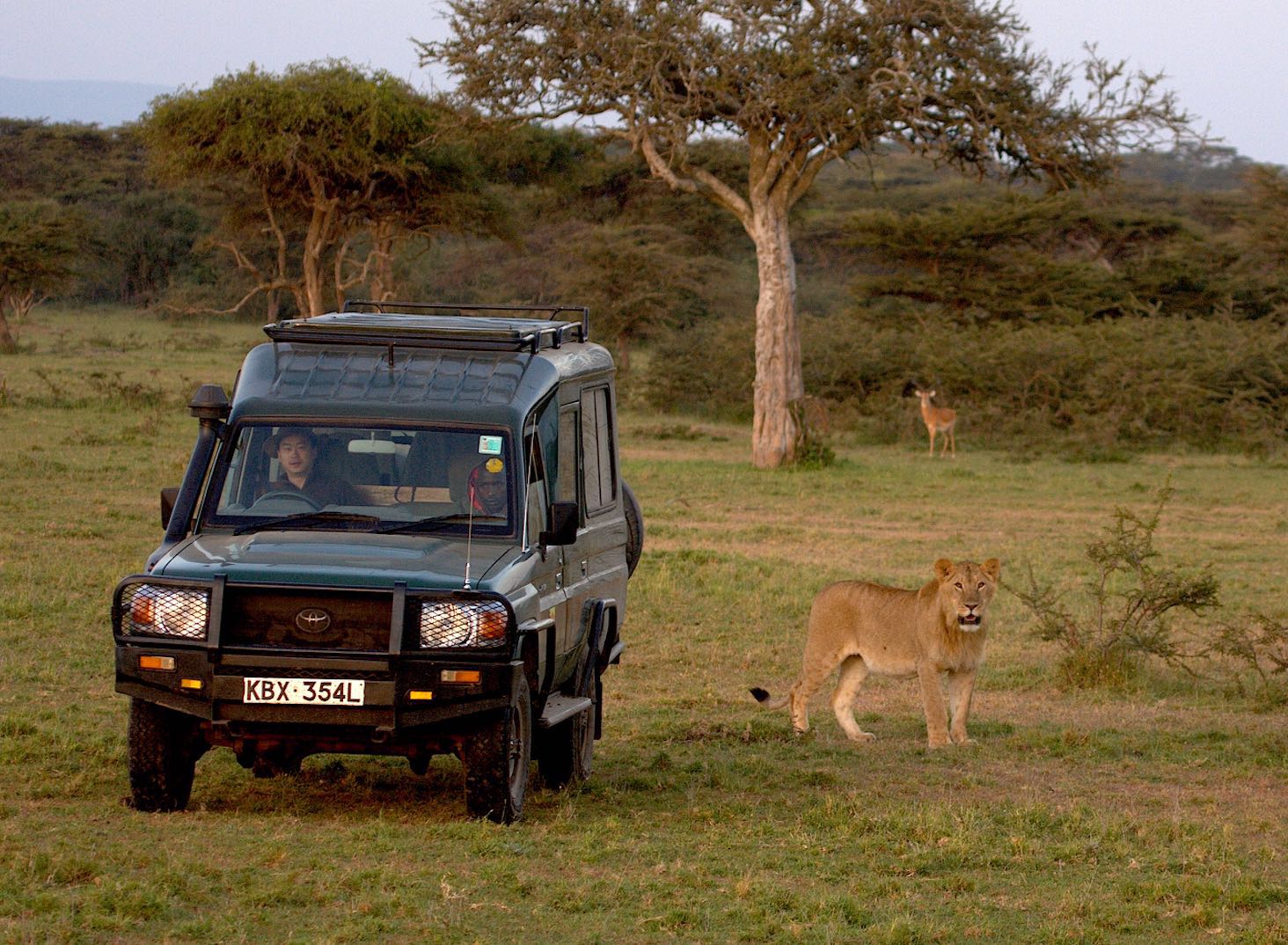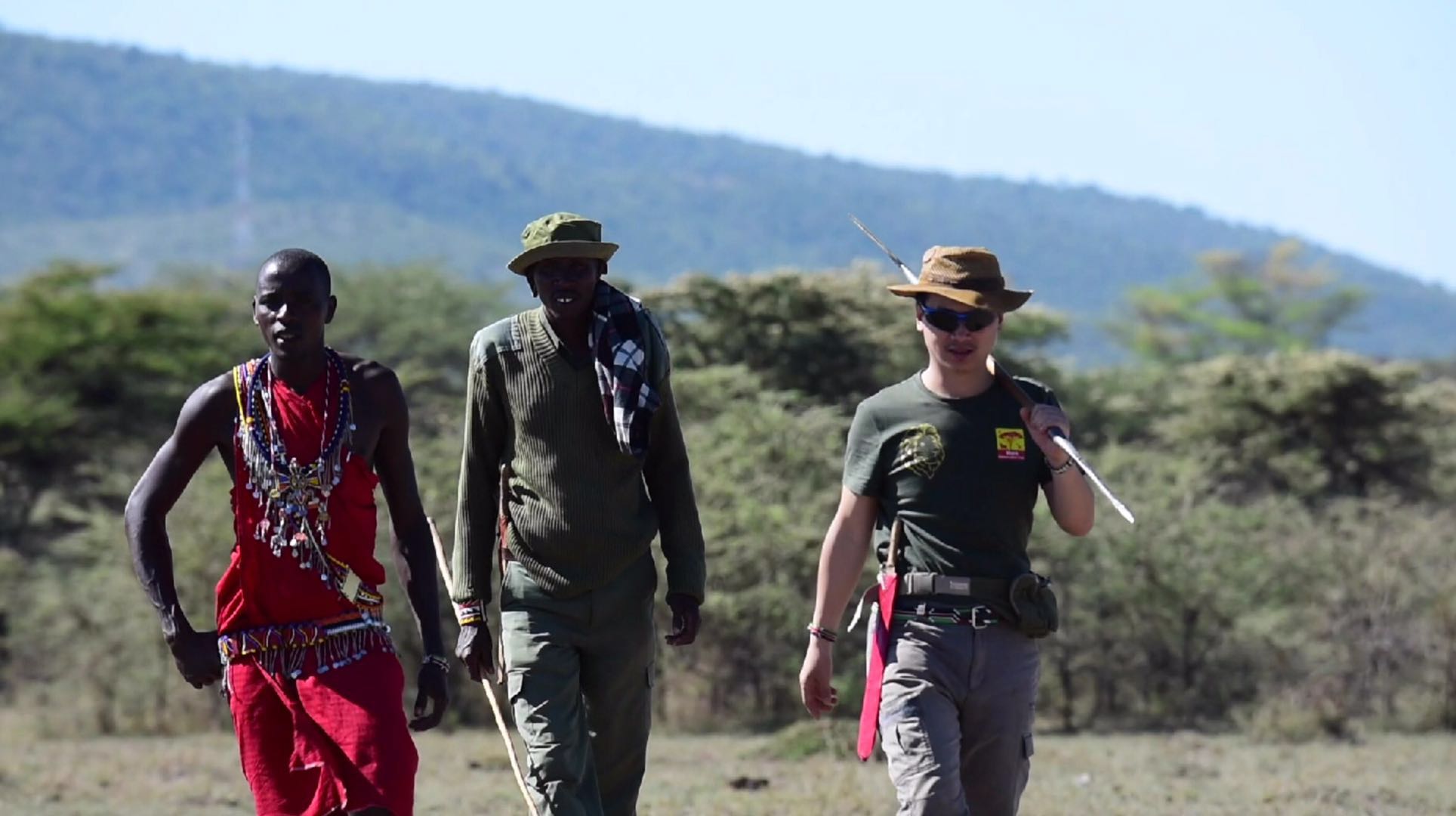By Qian Ding, CCTV.com editor
At nearly 300 kilometers west of Nairobi, Kenya's capital, located the Maasai Mara Eco system, which is home to approximately 25% of Kenya's wildlife. On the vast land of over 25,000km in territory, live more than 95 mammal species and 550 bird species, playing host to the great wildebeest migration, one of the most spectacular wildlife sceneries and is recognized as an Important Bird Area (IBA). Nonetheless, with the rapid and unequal socio-economic development in the region, the tension between wildlife and residents keeps rising. One Chinese man named Zhuo Qiang, with a commitment to protect lions, came here to make a difference. Via establishing Mara Wildlife Conservation Foundation in 2011, Zhuo became the first Chinese citizen to register a private charity in Africa.

After working as a civil servant for 15 years, Zhuo's life changed in 2004 when he visited Africa for the first time and saw a pride of lions. "It was as if I saw my own relatives, I didn't want to leave, especially upon seeing the pack. It was exactly what I had always pictured in my dreams. It was like a window opening for me to reveal my life's value and mission." He told the History Channel. In the following years, he traveled across Africa to learn more about animal conservation. He also adopted the Swahili word "Simba," which means lion as his second name. "When I was a child, this dream often came to me. Maybe once or twice a week. I dreamed of being a lion, going to Africa, staying and running in the Savannah," he added. And his dream came true in 2010 when he finally decided to move to Africa to save lions.
Wildlife protection is a challenging job. In Masai Mara Ecosystem, government-run Masai Mara National Reserve stood only a part of it, much land of the ecosystem has been issued to local Maasal. Thus wildlife protection relies heavily on individuals. However, exponential human population growth has led to growing demand for land and natural resources, increasing agricultural cultivation and large-scale construction. Some land are sold to outsiders who don't care about sustainable development. The increasingly fragmented land has caused a negative impact for wildlife migration and the ecological chain. Therefore, private conservancies are established under cooperation with local Maasai communities in order to protect wildlife while making a better living for locals.
In 2011, Zhuo established the Mara Conservation Fund, which provides funds for purchasing equipment and vehicles, offers education and measures to prevent conflicts between human beings and animals. In 2012, Zhuo had cooperated with Ol Kinyei Conservancy to promote wildlife conservation among Chinese communities. Some Chinese criticized him for protecting animals in Africa instead of in China. He said, "I'm a Chinese national, but I'm a global citizen. Animals don't have passports, pandas are not Chinese animals, lions are not African animals. They belong to the eco-system, just like humans, we are part of eco-system."
Doubts don't just come from China, but also from Kenya. Since many Chinese go to Africa to do business or construction work, many locals felt suspicious of Zhuo's motivation when he first arrived in conservation camps. Some even harbored doubts that he was a poacher under disguise. Zhuo told CCTV.com, "When I first went to Africa on my own, many people did not believe that the Chinese would come to Africa to protect wildlife. Some people even thought that all Chinese liked to buy ivory... But actions speak louder than words. Only actions can change their stereotypes." Yet with his sincerity and down-to-earth work, Zhuo proved himself to be a real conservationist, his heart-felt contributions were much appreciated by locals, in 2015 he became the first Chinese member of Maasal.

Simba and local rangers.
He believes education is a long-term solution to help local communities and conservation. According to tradition of Maasal people, killing a lion can turn them into warriors. The first man who speared a lion is considered to be the bravest warrior. Nowadays, Kenya, home to more than 800,000 Maasal people, have outlawed lion hunting in 1977. Many locals have realized the importance and the benefits of conservation. Nevertheless, in Tanzania, South Africa and other African countries, lion hunting is still legal despite protests. 200 years ago, there were approximately 1.2 million lions, but the number has decreased by half to around 200,000 today due to a lack of prey, loss of habitat and hunting. Now the species is listed as Vulnerable on the International Union for Conservation of Nature (IUCN) Red List.
Another challenge for wildlife conservation is poaching. Animals are slaughtered so their body parts can be illegally sold on the black market for huge sums of money. A Rhino horn is believed to cure cancer, so it can be sold as much as 60,000 US dollars per pound. Zebras are hunted for their skins, elephants are killed for their ivory, which is carved into jewelry and trinkets. U.S. banned the ivory trade in June, 2016 and China, which is believed to be the world's largest consumer of ivory, prohibited the buying and selling of ivory in 2017. The ban has worked so far with prices of ivory having dropped from over US$2000 per kg in 2014 to around US$700 in 2017.
Zhuo is also the founder of Friends of Africa, a Chinese forum established to promote wildlife protection education and cooperation. Every year, around 100 Chinese volunteers go to Kenya to work with him on conservation projects. "We've seen progress made by the Chinese government, its media and citizens. The ban on ivory trade is a great encouragement to us. But compared to developed countries, support from society is still not enough in China. We need more people to support global wildlife protection, protect earth ecology and make the world greener." Zhuo told CCTV.com.
(The opinions expressed here do not necessarily reflect the opinions of Panview or CCTV.com. )

Panview offers a new window of understanding the world as well as China through the views, opinions, and analysis of experts. We also welcome outside submissions, so feel free to send in your own editorials to "globalopinion@vip.cntv.cn" for consideration.
















